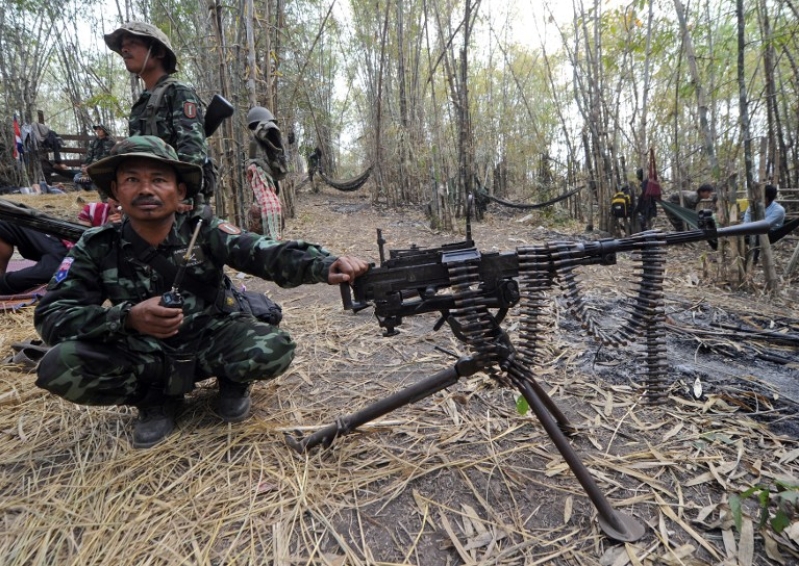
Christians in Burma are suffering from brutal mistreatment at the hands of the Burmese Army, including being forced to enter landmine-riddled areas in "clearance" for Burmese troops, a shocking new report has revealed.
According to Fox News, Burma's ethnic cleansing campaign against Christians has displaced at least 100,000 people, many of them still stranded in the Burmese jungle terrain. Caught in an ongoing civil conflict in the Buddhist-majority country, thousands of believers have been subject to rape, murder, and forced conversions. Others are used by the Burmese Army to "clear" areas peppered with landmines, where they risk running into unexploded devices.
"Christianity is under direct attack by the Burma Army. Christians have repeatedly been singled out for rape, torture, and death over the course of this war, and that trend is continuing," Ephraim Mattos, East Asia Operations Manager for The Nazarene Fund (TNF), a humanitarian group that works to support the plight of Christians worldwide, told Fox News. "In Burma, if you don't fall into the category of being Buddhist and ethnic Burmese, then you are considered second-class, and not worthy of the full rights of a citizen."
Christians in Burma make up an estimated 8.2 percent of the country also known as Myanmar - or around four million people. Fox notes that the campaign of ethnic and religious purging in the country will only increase, as the operations are "carried out like clockwork along the border provinces."
In Burma's Kachins state, military forces have destroyed about 60 Christian churches, turning some of those properties into Buddhist pagodas, and destroyed nearly 7,000 villages of the Christian stronghold.
Earlier in August, the Trump administration sanctioned Myanmar military forces for their "ethnic cleansing" of the Muslim Rohingya population in Rakhine state and "widespread human rights abuses" against Christians and other religious minorities in the Kachin and Shan states.
"Burmese security forces have engaged in violent campaigns against ethnic minority communities across Burma, including ethnic cleansing, massacres, sexual assault, extrajudicial killings, and other serious human rights abuses," Sigal Mandelker, Treasury under secretary for terrorism and financial intelligence, said in a statement. "Treasury is sanctioning units and leaders overseeing this horrific behavior as part of a broader U.S. government strategy to hold accountable those responsible for such wide scale human suffering."
Mandelker assured that there must be "justice for the victims" and those responsible need to be "held to account."
Fox notes that Christians are persecuted in more "subtle ways," too. Saw Kwe Htoo Win, Vice Chairman of the Karen National Union (KNU), told Fox that even though Christians are constitutionally permitted to teach their language and faith in the classroom, the central government only brings in educators who are Buddhist, and speak only Burmese.
Additionally, District Chairman of the Hpa-an region of Karen state, Padho Aung Maw Aye, told Fox he knows of cases where Christians in the community had applied to the central government for identification cards, only for the cards to be returned with "Buddhist" listed.
In light of these ongoing atrocities, ppersecution watchdog Open Doors USA ranks Burma 24th on its World Watch List of countries where Christians face the most persecution.
Notes the outlet: "In some instances, Buddhist monks have invaded church properties and built Buddhist shrines on church premises. The Buddhist, Muslim or tribal families of converts persecute believers, often ostracized from society. Communities who aim to stay "Buddhist only" make life for Christian families impossible by not allowing them to use community water resources. Evangelical church groups experience opposition as well, especially those in rural areas of Myanmar."
Despite such persecution, Christianity continues to grow in Burma. Ta Doe Moo, Secretary-General of the KNU, said discussion of faith has become more "illuminated inside Burma in recent years.
"It used to be when I was young that whether you were Muslim, Christian or Buddhist, it was never talked about and it didn't matter," Moo said. "Now, that is very different."






